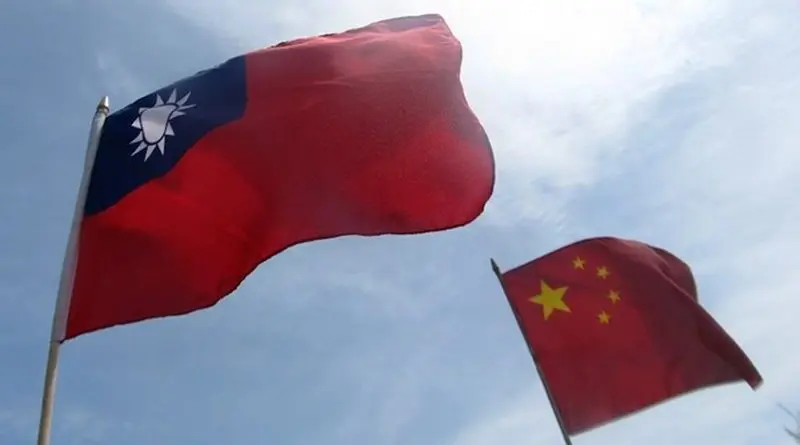Taiwan As A Dilemma For China-US Relations – OpEd
According to Bloomberg, March 26, 2021, US and Taiwan signed a special agreement to boost their coast guard cooperation. As part of the agreement, the two countries pledged to improve communication, information, and continuing relations. But, this agreement is a bad signal for US and China relations, as at the outset several experts had expected their ties would improve.
Biden’s rise brought a new atmosphere with regard to US politics in addressing China’s existence. This fact was confirmed by the President of the United States Joe Biden in an interview conducted by CBS on February 7, 2021, “I’m not going to do it the way Trump did. We are going to focus on the international rules of the road.”
Biden hinted he would pursue politics with China through a multilateral approached. Although China is not a priority on the US agenda, Biden will have to face China patiently and slowly. This attitude was conveyed by the White House spokesperson Jen Psaki on January 25, 2021 who said that, “What we’ve seen over the last few years is China is growing more authoritarian at home, and more assertive abroad, and Beijing is now challenging us. security, prosperity and values in significant ways that require a new US approach. We want to approach this with some strategic patience.”
Through a spokesperson, China’s Foreign Minister Wang Yi responded to the US stance. With the agenda that Biden wants to carry out, China wants to try to improve relations with the US. The dialogue that was carried out recently with Biden is expected to be a positive first step. Wang added that,”We stand ready to have candid communication with the US side, and engage in dialogues aimed at solving problems”.
However, the US has many considerations if it wants to communicate well with China, including that of Taiwan. Under the Trump administration, Taiwan became one of the US icons in East Asia and a front to face China. To that end, Trump left a large legacy in Taiwan that needs to be considered by Biden in response to his relationship with China.
China Pressure
Among other acts to consider is Trump’s signing of the Taipei Act (Taiwan Allies International Protection and Enhancement Initiative Act). Substantively, the law encourages the United States to raise Taiwan’s existence in a global context. This is stated in one of the articles of the law which reads, “It is United States Policy to support the close economic, political, and security relationship between Taiwan and the United States.”
The Taipei Act sends a clear signal to China with respect to its intentions recover control over Taiwan. On that level, on March 29, 2021, around 10 of China’s jets crossed over Taiwanese territory, adding to a previous, similar exercise in which China also sent 20 military jets.
This is one of Biden’s considerations in issuing policies towards China. Besides, many predictions that Biden will have a different policy towards China the fact is that Taiwan will be a big consideration. One proof of this is that Biden invited the Taiwanese envoy, Hsio Bi-Khim to Washington to attend his inauguration.
Therefore, Taiwan is increasingly becoming a major obstacle in reconciling good relations between the United States and China in the Taiwan Strait because the United States still has the responsibility to comply with the Taiwan Relations Act 1979 (TRA).
Tsai Ing-wen’s Optimistic Narrative
While maintaining close ties with Washington during the Trump era, Taipei became optimistic about US support for Taiwan. This positive signal has been expressed by the President of Taiwan, Tsai Ing-wen, who wished relations to continue along the path outlined during the Trump era.
On November 8, 2020, via her twitter account, Tsai expressed his congratulations to then President-elect Joe Biden and Kamala Harris. Tsai said, “Now it is my turn to extend congratulations to @JoeBiden & @KamalaHarris on being elected President & VP-elect. The values on which we have built our relationship could not be stronger. I look forward to working together to further our friendship, & contributions to int’l society.”
That sentiment was also echoed by the account of Taiwan’s Ministry of Foreign Affairs said that, “We look forward to working closely with the US in deepening bilateral friendship and exchanges based on our shared values of freedom, democracy and respect for human rights. Taiwan also wants the two countries have the same and strong values in continuing the cooperation, which is inversely different from the values of the US and China.”
From the outset, Biden insisted that US-China relations would substantively run as usual. Under the Biden administration, the US wants to have China as a friend, and also Taiwan. Nevertheless, this approach will be difficult to achieve given China’s stance, and because of this Taiwan’s existence is a dilemma for Biden to overcome in his efforts to recover relations with China.
*M Habib Pashya is a International Relations student at Universitas Islam Indonesia, Indonesia and a research asisstant at Universitas Gajah Mada, Indonesia.

